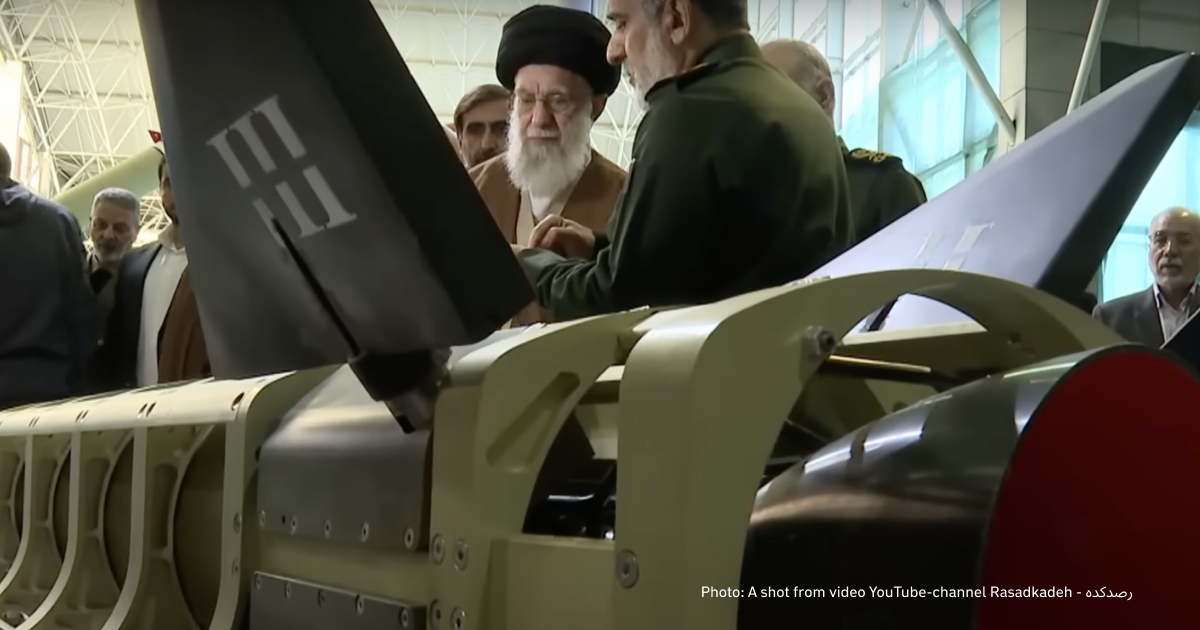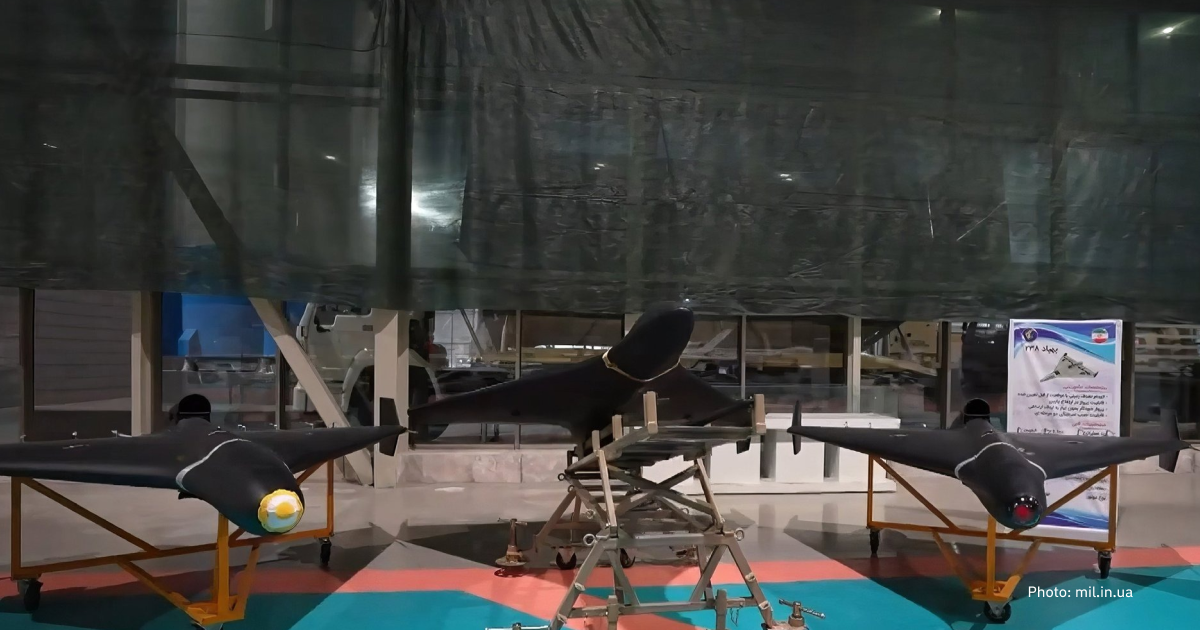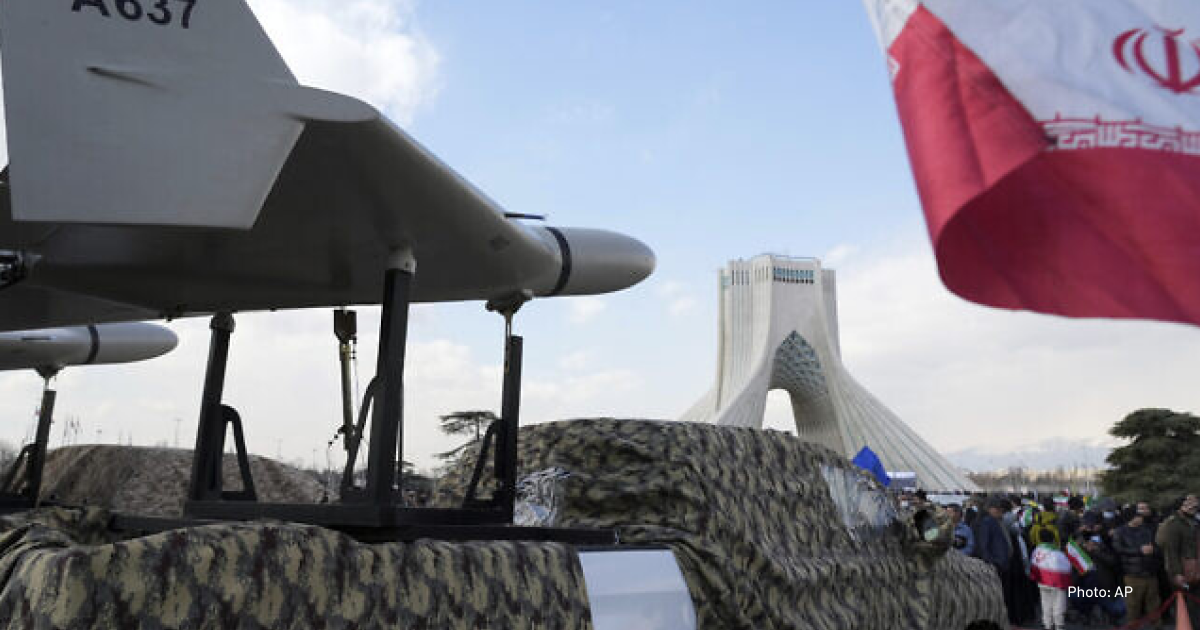A new modification of the Shahed drone: what is known about it, and what does the Ukrainian Air Force say?

What happened?
Iran has officially introduced a new Shahed-238 jet attack drone. It was developed by the Iranian Ashura University of Aerospace Sciences and Technology.
The presentation of the development took place during the visit of the country's leader, Ayatollah Khamenei, to the university in Tehran, where he was shown the latest achievements of the Islamic Revolutionary Guard Corps Aerospace Force, the military arm of Iran's executive branch.
What is known about the drone?
The technical characteristics of the Shahed-238 remain unknown.
Militarnyi writes that three versions of the drone with different guidance systems were shown at the presentation. The fuselages of all three drones are atypically black for Iranian drones, possibly due to the use of radio-absorbing materials.
In addition to the classic version with an autonomous inertial navigation system and GPS, versions with infrared/optical and, presumably, radar guidance systems were also presented.

This version can be used to engage thermal targets, such as military equipment in the rear.
Thanks to the radar seeker, the drone can become an analogue of anti-radar missiles that are guided by the radiation of search radar stations. Such a device can neutralise and defeat an air defence system.
What is the reaction of the Ukrainian Air Force?
Ukrainian Air Force spokesman Yurii Ihnat says the new attack drones introduced by Iran could be harder for air defence units to detect.
This Shahed is a jet, and it is already painted in a matte black colour, which can make the work, the visual link with this drone, more difficult,
Ihnat said on the national TV marathon.

It is not yet known whether Russia will buy this type of drone.
US, EU, and Australian sanctions
Iran's UAV programme is subject to US sanctions. Since September 2022, the Treasury Department has imposed nine rounds of sanctions.
During the last round of sanctions, it was revealed that companies and individuals not only from Iran but also from China, Hong Kong, Türkiye and the United Arab Emirates were involved in the purchase of components for Iranian UAVs.
This network facilitated supplies and financial transactions to support the purchase of servo motors, a critical component used in the Shahed drones.
The procurement scheme worked like this: the Iranian company Pishgam Electronic Safeh Company bought thousands of servo motors for UAVs, worth hundreds of thousands of dollars, from Hong Kong-based Hongkong Himark, which has completed several orders for servo motors worth more than a million dollars.
Turkish companies Dal Enerji and Anka Port facilitated financial transactions to support the purchase of the servo motors, while Farhad Ghaedi of the United Arab Emirates facilitated their delivery via Dubai for onward shipment to Iran.

Previously, the United States imposed restrictions on an international drone production network based in Iran, China, Russia, and Türkiye that facilitated the supply and financial transactions in support of the production, procurement, and maintenance of UAVs by the Iran Aviation Industries Organization.
The EU imposed restrictions on Iran's drone production in July 2023. The restrictions include a ban on exports from the European Union to Iran of components that could be used in the production of drones.
There are also travel restrictions, and asset freezes on people who support or participate in Iran's drone programme.
Australia has imposed restrictions on 13 individuals and one organisation involved in the production and supply of drones to Russia.


